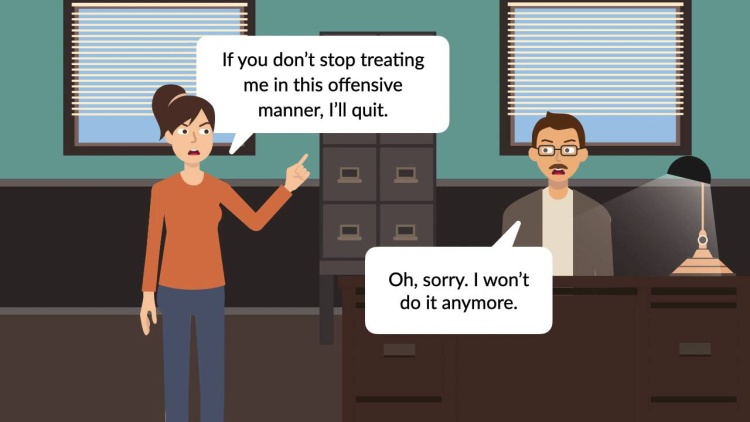Harris v. Forklift Systems, Inc.
United States Supreme Court
510 U.S. 17, 114 S. Ct. 367, 126 L. Ed. 2d 295 (1993)
- Written by Nan Futrell, JD
Facts
Teresa Harris (plaintiff) worked as a rental-equipment manager at Forklift Systems, Inc. (Forklift) (defendant) from April 1985 through October 1987. Throughout Harris’s time at Forklift, company president Charles Hardy routinely subjected Harris to gender-driven verbal insults. Hardy targeted Harris and other female employees with frequent sexual innuendos, sexually suggestive comments, and sexually explicit gestures. In August 1987, Harris confronted Hardy about the offensive conduct and asked that it stop. Despite apologizing and assuring Harris the behavior would stop, Hardy again began making sexist and sexual comments to Harris. Harris quit one month later. Harris sued Forklift, alleging Hardy’s offensive behavior had created a hostile and abusive work environment based on Harris’s gender, in violation of Title VII of the Civil Rights Act of 1964 (Title VII). The district court concluded that although a reasonable woman in Harris’s position would find the conduct offensive, it did not create a hostile work environment, because it did not cause severe psychological injury or interfere with Harris’s job performance. The United States Supreme Court ultimately granted Harris’s petition for review in order to resolve a conflict among the United States courts of appeals over whether Title VII requires that hostile-work-environment discrimination cause psychological injury.
Rule of Law
Issue
Holding and Reasoning (O’Connor, J.)
What to do next…
Here's why 906,000 law students have relied on our case briefs:
- Written by law professors and practitioners, not other law students. 47,100 briefs, keyed to 995 casebooks. Top-notch customer support.
- The right amount of information, includes the facts, issues, rule of law, holding and reasoning, and any concurrences and dissents.
- Access in your classes, works on your mobile and tablet. Massive library of related video lessons and high quality multiple-choice questions.
- Easy to use, uniform format for every case brief. Written in plain English, not in legalese. Our briefs summarize and simplify; they don’t just repeat the court’s language.





